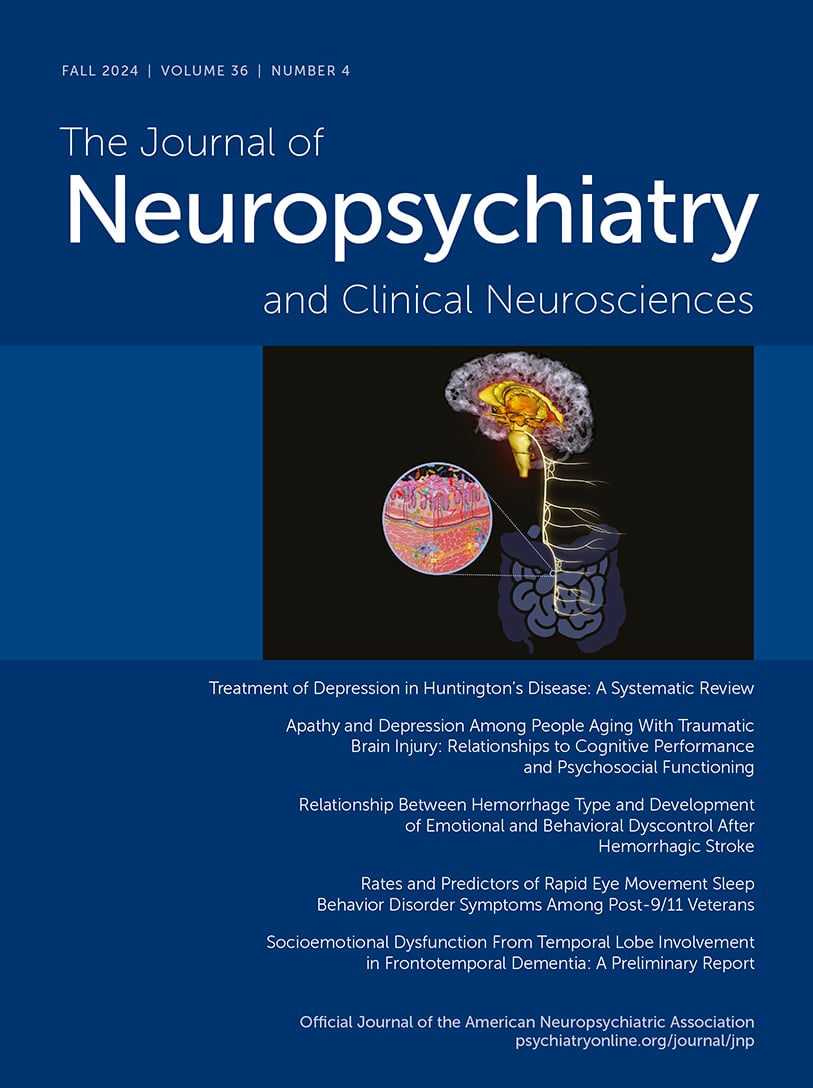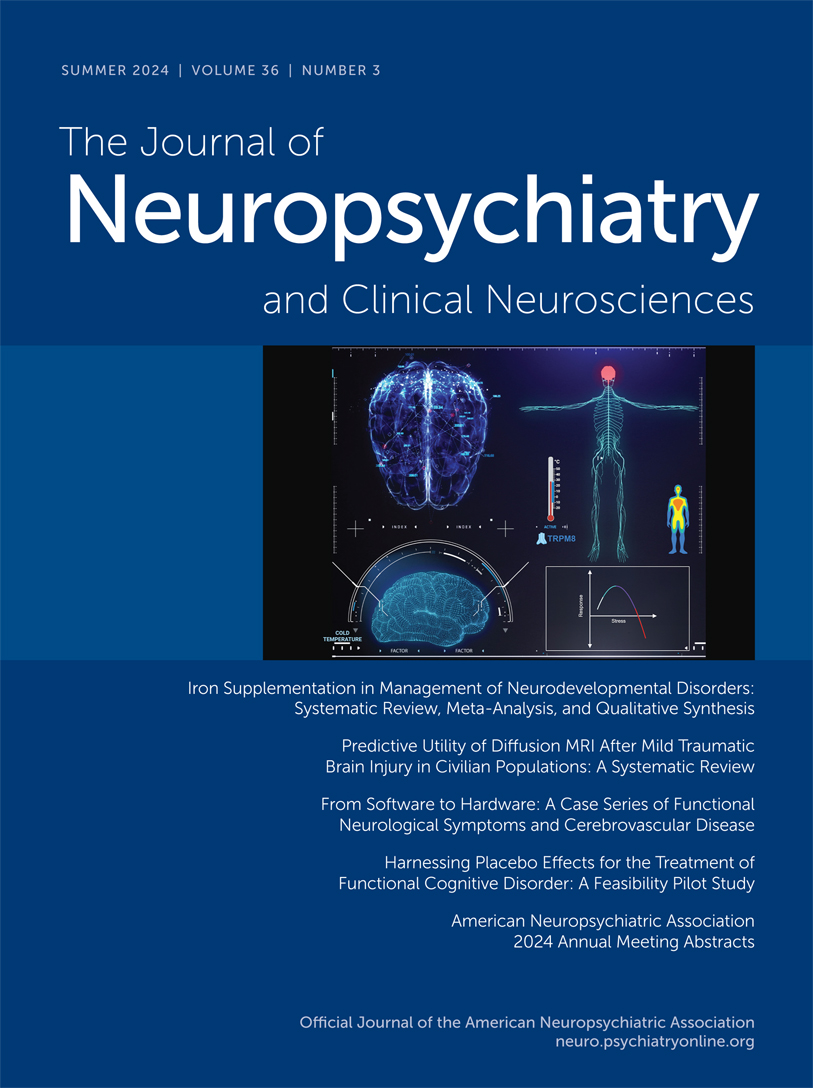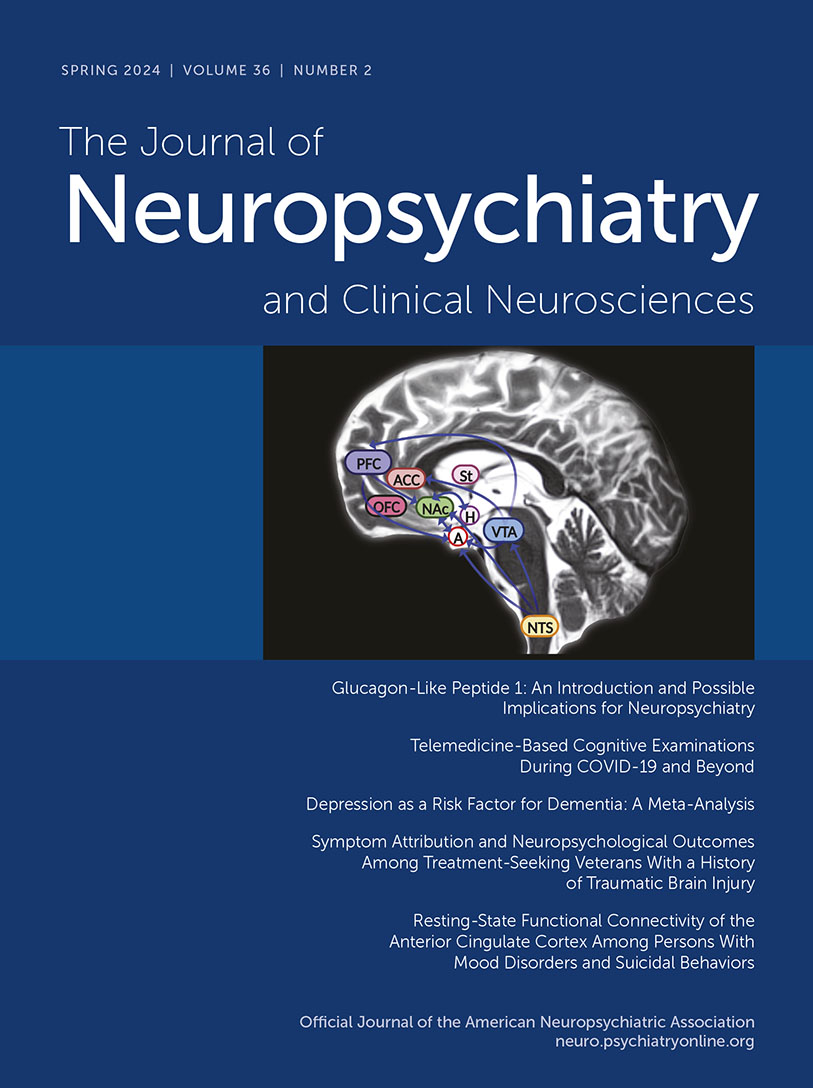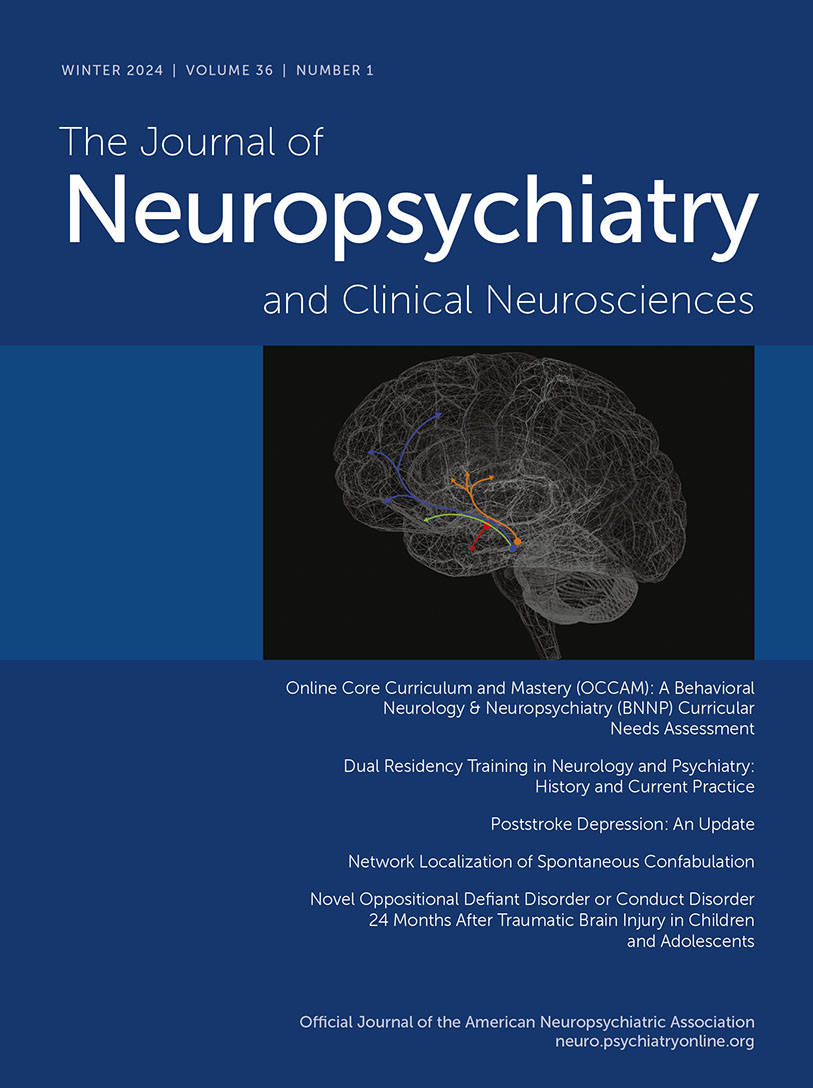The Journal of Neuropsychiatry and Clinical Neurosciences
- Volume 30
- Number 4
- October 2018
Windows to the Brain
Special Articles
Publication date: 25 June 2018
Pages262–270This article outlines the epidemiology of psychiatric disorders in individuals with traumatic brain injury (TBI), with a focus on DSM axis I disorders diagnosed on the basis of structured clinical interview. The epidemiology of psychiatric disorders in ...
https://doi.org/10.1176/appi.neuropsych.18040093Publication date: 25 June 2018
Pages271–278Neurology and psychiatry share common historical origins and rely on similar tools to study brain disorders. Yet the practical integration of medical and scientific approaches across these clinical neurosciences remains elusive. Although much has been ...
https://doi.org/10.1176/appi.neuropsych.17100200Publication date: 24 August 2018
Pages279–290Well-described clinical case reports have been a core component of the neuropsychiatry literature and have led to: a deepened understanding of brain-behavior relationships and neuropsychiatric phenomenology, new paths for research, and compelling material ...
https://doi.org/10.1176/appi.neuropsych.18020027Opinion
Regular Articles
Publication date: 26 July 2018
Pages294–301The authors aimed to evaluate whether the clinical phenotype of delirium differs if dichotomized either by sex or age (cutoff age, 65 years old) in a pooled sample of 406 nondemented adult patients with delirium as defined by DSM-IV criteria. Delirium ...
https://doi.org/10.1176/appi.neuropsych.18020024Publication date: 30 May 2018
Pages302–309The authors assessed the relationship between confabulations in Alzheimer’s disease and the ability to mentally travel in time to reexperience memories. Twenty-seven patients with Alzheimer’s disease were administered evaluations of provoked ...
https://doi.org/10.1176/appi.neuropsych.17110266Publication date: 26 July 2018
Pages310–317The purpose of this study was to characterize cognitive impairments and behavioral disorders in a sample of patients with chronic kidney disease (CKD). A total of 52 patients with CKD were prospectively recruited over a 344-day period. Cognitive functions ...
https://doi.org/10.1176/appi.neuropsych.18030047Publication date: 24 August 2018
Pages318–324Trichotillomania is a relatively common psychiatric condition, although its neurobiological basis is unknown. Abnormalities of flexible responding have been implicated in the pathophysiology of obsessive-compulsive disorder and thus may be relevant in ...
https://doi.org/10.1176/appi.neuropsych.18030038Clinical and Research Reports
Publication date: 30 May 2018
Pages325–333The capacity to regulate urges is an important human characteristic associated with a range of social and health outcomes. Self-regulatory capacity has been postulated to have a limited reserve, which when depleted leads to failure. The authors aimed to ...
https://doi.org/10.1176/appi.neuropsych.17070140Case Reports
Book Review
Departments
Past Issues
View Issues Archive
Vol. 36 | No. 4

Vol. 36 | No. 3

Vol. 36 | No. 2
